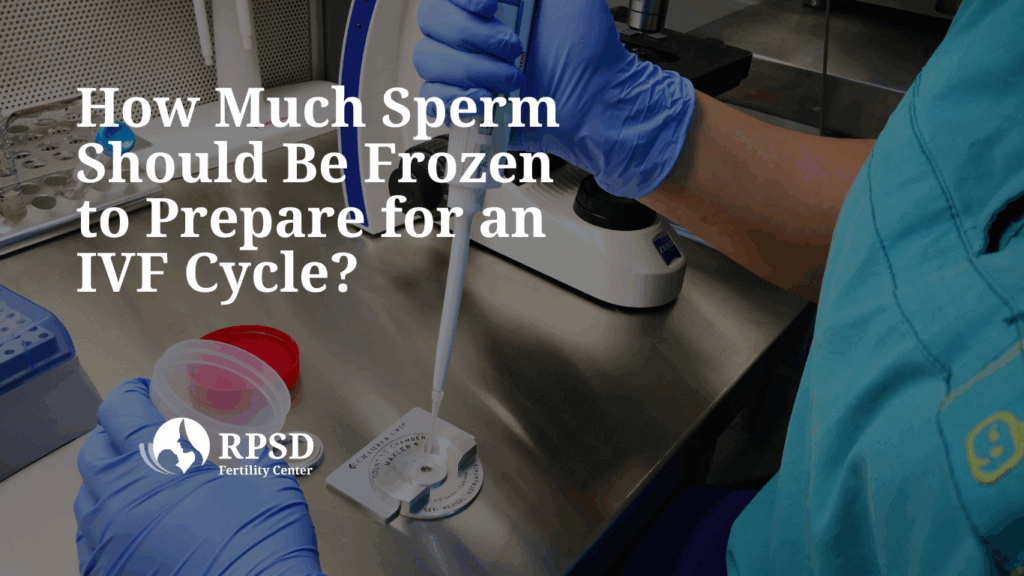
Freezing sperm is a proactive and empowering step in the IVF journey—whether you’re preserving fertility for the future or preparing for a partner’s egg retrieval. At Reproductive Partners Fertility Center – San Diego (RPSD), we often hear the question:
“How much sperm should I freeze to feel fully prepared?”
The answer depends on several factors, including your semen quality, family-building goals, and the type of IVF treatment you’re pursuing. Here’s what you need to know.
Sperm freezing (cryopreservation) is commonly used when:
Freezing sperm in advance ensures you’re covered, especially if producing a fresh sample under pressure may be difficult.
For traditional IVF, only a few thousand motile sperm are needed per egg, while ICSI (intracytoplasmic sperm injection) requires just one healthy sperm per egg. That means even a single well-preserved sperm sample may be enough—but not always.
Most clinics recommend freezing at least 1–2 high-quality semen samples, which are then divided into multiple vials. Each vial can be thawed and used individually based on need.
However, the right number for you depends on:
At RPSD, we make the process as smooth and private as possible:
You’ll receive expert guidance based on your unique fertility profile and IVF plan.
Whether you’re planning ahead or preparing for a time-sensitive cycle, RPSD provides personalized guidance, advanced cryopreservation techniques, and peace of mind.
Schedule a semen analysis or sperm freeze consultation with our team to learn how many samples are right for your journey.
Our skilled fertility specialists are here to help. Contact us today and let’s discuss the next phase of your fertility journey.
Our skilled fertility specialists are here to help. Contact us today and let’s discuss the next phase of your fertility journey.